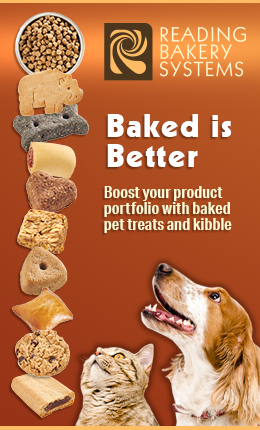Faced with these numbers, the upcycling technique becomes increasingly relevant in industries such as the food industry, which absolutely needs to take measures regarding raw materials and waste treatment.
What is upcycling?
Upcycling, known as upcycling or creative reuse, consists of the use of products, waste materials, or waste to manufacture new ingredients or products of higher quality, ecological, and economic value. Thus, through recycling, healthy, and nutritious foods and ingredients are prevented from becoming waste, giving them a second chance to be consumed.
Ingredients that can be recycled help pet food manufacturers improve their efforts to build sustainability. The products of this type most used in the industry have been, at least until now, those made from extracted meat by-products. Although converting meat by-products into protein-rich sources instead of throwing them away is something positive, nowadays, the most innovative ingredients and materials are those capturing the attention of pet food consumers concerned about the planet's sustainability. Many certified recycled elements can be easily integrated into any recipe, giving the new product a competitive advantage in sustainability. The main challenge is that these usually have the same nutritional properties as other more conventional, but not the same appearance. To work with them, it is essential that the processing and control systems take these variations into account, as well as formula design. Rescuing these ingredients not only helps eliminate food waste throughout the supply chain but also reduces demand for 'virgin' crops.
But, when we talk about the inclusion of new ingredients and by-products, we must also talk about education and awareness. In the case of pet food and its relationship with cereal ingredients such as wheat, corn, and rice, commonly used as sources of carbohydrates, there is debate about how much of these nutrients are necessary for pet feeding. Although the pet nutrition industry struggles to eradicate misconceptions about these ingredients, the challenge still exists and, consequently, affects the use of these new proposals in food formulas.
The truth is that recycled products prevent nearly one billion pounds of food waste worldwide each year, and this number may continue to grow as consumer demand for recycled products increases, which, Obviously, will be achieved through information and awareness.
Currently, you don't have to look hard to find proposals from entrepreneurs or small manufacturers who, instead of working with large suppliers and processing plants, choose local farms and suppliers as they trust the quality of their raw materials, especially when we talk about those considered waste or by-products.
The good point is that most of these elements can be easily integrated into any recipe, making a product (and its entire chain) more sustainable by reducing greenhouse gasses and using waste from other industries or chains in pet food formulas without risking quality, as may be the case of pumpkins used for decoration at Halloween or apple pulp from a cider factory.
According to the UFA (Food Upcycling Association):
'Recycled foods use ingredients that otherwise would not have reached consumption. They are sourced and produced through verifiable supply chains and have a positive impact on the environment.'
This entity has already certified more than 200 ingredients as recyclable in the food sector, many of which have applications in pet food and treats.
Examples of materials and ingredients used in upcycling:
- Sweet potatoes or other types of tubers that come from local organic farms and that have rare shapes that are not as aesthetic as those hypermarket chains seek to sell.
- Ends and pieces of meat and seafood that have not been sold in the supermarket.
- Fruits that, like tubers, are bruised or with amorphous shapes.
- Alternative proteins such as cricket, spirulina, or silver copi, an overpopulated fish.
- Used barley from local breweries.
- Eggshells.
- Salmon oil, produced from fresh salmon trimmings, such as the head, spine, and skin.
- By-products from the production of french fries or potato starch are applied in formulas to gain texture, shape croquettes, and improve digestion.
Conclusion
Recycled ingredients have revolutionized the pet nutrition landscape as a way to add value to elements that would otherwise go to waste while also supporting pet health. Various agricultural products and wheat-based ingredients, including blueberries, sweet potatoes, flaxseeds, carrots, and various flours, are currently used in the North American pet food and treat industry to capitalize on sustainability as a consumer priority.
Converting by-products into pet food ingredients reduces food waste and makes more efficient use of the resources needed to produce human food. Renaming these recycled products could help pet owners accept them.
Source: All Pet Food Magazine.
You could be interested: The Conscious Nutrition Era, or With Science Era, Now in Dogs and Cats
About author
María Candelaria CarbajoI’m a creative, interdisciplinary person, translator, and editor. I collaborate in producing and writing creative, high-impact projects to promote cultural exchange, transmit differential values, and connect with people/the audience. Likewise, I enjoy teamwork and joining forces, experiences, and knowledge to bring the world all the potential of those ideas that seek to impact people’s lives positively.

































